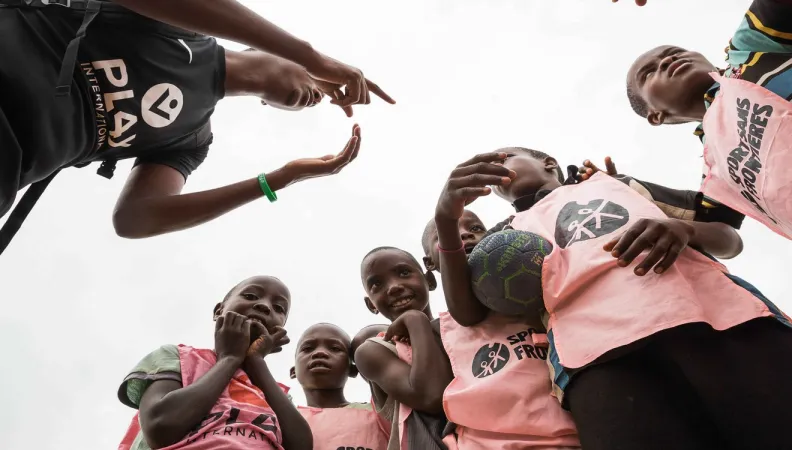Share the page
Sports as a Driver of Development and Peace
Published on

Sports are often linked to development, but the exact relationship is rarely explained. Whether the issues revolve around gender, health or education, how to measure the impact of sport on the Sustainable Development Goals? To mark the International Day of Sports for Development and Peace on 6 April, AFD is publishing a technical report, which examines the role of sports in development using some 20 indicators.
How many people first engaged in physical activity via a sport and development project? Have such activities helped reduce biases against women? Have they contributed to a fall in school dropout rates? In the new report published by AFD, “Sport for Development and Peace,” 20 indicators are unpacked to measure the benefits of sports in development projects, covering various fields, including social cohesion, gender, urban development and citizens’ participation in the governance of projects.
The report was written by Emmanuel Rivat, Innovation Director at Agence Phare, and David Blough, former Executive Director of PLAY International and CEO of “10,” a company promoting social impact in the field of sport.
Further reading: 5 Unsuspected benefits of sport
Blough’s new book, “The Sport of Solutions” (currently only available in French), provides “a round-the world look at initiatives that unleash the social potential of sport.” In Senegal, for instance, the association “For a Child’s Smile” (Pour le Sourire d'un Enfant) uses fencing as a tool for social integration in prisons in the outskirts of Dakar.
In South Africa, the NGO Waves for Change has created therapy with surfing, which works on the resilience of young people living in townships. It provides insight into these initiatives which use sport in new ways to provide a response to the Sustainable Development Goals.”
Developing social ties
A project called “Ejo”, which means “tomorrow” in Kirundi, was initially deployed in Burundi, before being extended to three other countries (Kosovo, Liberia, Senegal,) reaching 80,000 children. Implemented by PLAY International and AFD Group, it helps make quality education accessible (Sustainable Development Goal N° 4) for the most vulnerable, such as girls, children with disabilities and minority communities.
It also aims to strengthen social cohesion. “Ejo is an inclusive education program,” says Julie Delaire, Head of Operations at PLAY International. “It goes beyond learning content and offers a safe space for marginalized groups where they can get together, interact and participate in social life.”
Find out more about AFD Group’s activities to support sport and development
Strengthening women’s empowerment
Sport has also proved its worth in the fight against gender inequalities. The report states that in a project led by School of Hard Knocks, in partnership with AFD, 67% of the male participants have reconsidered their initial perception of gender issues, especially in terms of equal treatment and access to sports activities, including those regarded as “men’s sports.”
The report’s wide range of indicators can help sports and development organizations build their evaluation criteria for projects or assist governments and NGOs analyze the impact of their actions in the field. They can also help development banks and institutions determine whether to finance projects or account for the funding of projects already financed. Civil society organizations (CSOs) can use the indicators to quantify their advocacy and raise awareness.
Of course, many of the benefits of sporting activities are hard to quantify. A woman escaping domestic violence for example, may have separated from her spouse, joined a boxing club, and begun therapy with a psychologist. Measuring the benefits of any one such action, such as boxing, is difficult and requires sophisticated survey protocols.
Still, sports do provide an opportunity which, when combined with other factors (personal, societal and economic), can accelerate social development. In 2019, AFD was one of the first development banks to adopt a Sport and Development strategy to promote access to sport for all, and the empowerment of young people and women through sport. AFD and its partners have since supported over a hundred initiatives, mainly in Africa.
Read the report: "Sport for Development and Peace"
